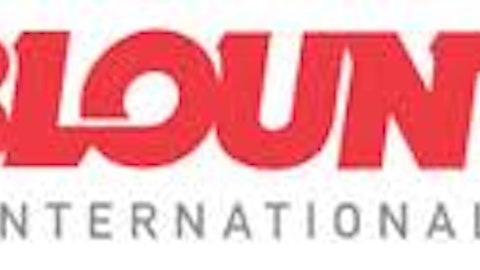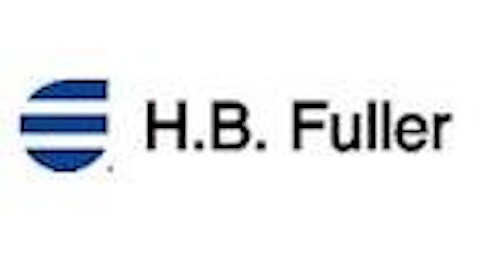There is a good deal of optimism, and certainly interest, among investors in companies tied to agriculture. As the world population grows, people will need more food; as eating habits in the developing world come to resemble those in America, people in those countries will eat more (particularly meat, which in turn requires more crops to be used for animal feed). This week we published a guide to the global fertilizer and industrial chemicals industry (read it here). However, there are other ways to play agriculture trends, and one of them is by going long Deere & Company (NYSE:DE). Deere is best known for its agricultural equipment, though it also provides turf and forestry related machines and products.
At a market capitalization of $31 billion, Deere & Company trades at 11 times trailing earnings despite seeing double-digit percentage increases in both revenue and earnings last quarter compared to the same period in 2011. Wall Street analysts expect this growth rate to slow in the next fiscal year, which ends in October 2013, but even their modest projections yield a forward P/E of 10. Given the company’s valuation metrics, size, growth rate, market positioning, dividend yield (2.2%), and brand name, we think that it makes for an attractive value investment. And then there’s the fact that Deere repurchased $1.2 billion in stock during the first three quarters of its fiscal year (ending in October), and still had authorization to buy back almost $3 billion in shares at the end of the quarter.
During the second quarter of 2012, Adage Capital Management initiated a position of about 750,000 shares in Deere & Company. Adage is managed by Phil Gross and Robert Atchinson, who had previously worked at Harvard Management; the endowment actually owns a minority position in the management company (see more stock picks from Adage Capital Management). Billionaire Ken Griffin’s Citadel Investment Group had a small position in Deere at the beginning of April, but by the end of June the large hedge fund had grown its stake to a total of about 850,000 shares (find more stocks Citadel was buying).
The best comp for Deere is CNH Global NV (NYSE:CNH), another large-cap which provides both farm and construction equipment. CNH is actually a bit cheaper than Deere at 9 times trailing earnings and 8 times forward estimates, and it too has been growing its revenue and earnings. If investors do not mind that it is a much less defensive stock than Deere (its beta is 2.7, compared to Deere’s 1.4, and CNH does not pay a dividend) it could make for a value play as well.
We’d also consider Caterpillar Inc. (NYSE:CAT) as a peer, and given that we’re interested in Deere for its exposure to agriculture we think investors would also be considering two popular choices that go with that investment theme: fertilizer provider Potash Corp./Saskatchewan (NYSE:POT) and seed company Monsanto Company (NYSE:MON). Caterpillar is cheap on a quantitative basis- only 9 times trailing earnings- but investors are worried that lower growth in China could dampen global construction demand and hit its business particularly hard. The company has been doing very well recently, growing its revenue and earnings, so we’re perhaps more bullish than the market though we can understand investor fear on this point. Potash Corp. is also cheap, at trailing and forward P/Es of 14 and 11 respectively, but its stock price and earnings are actually down from a year ago. It probably has more pure exposure to agriculture, yet we would prefer Deere. Monsanto has also been struggling recently- its revenue dropped 6% last quarter versus the same period in 2011- and it trades at a substantial premium to all of the companies we discussed at 18 times consensus earnings for its fiscal year ending in August 2014. We think it is too expensive relative to these other agriculture-dependent companies.
Deere, along with some other stocks that benefit from growing demand for agriculture, is growing nicely and yet trading at a fairly low multiple of its historical or forward earnings. We would say that investors should consider it or a similar company for their portfolio.






